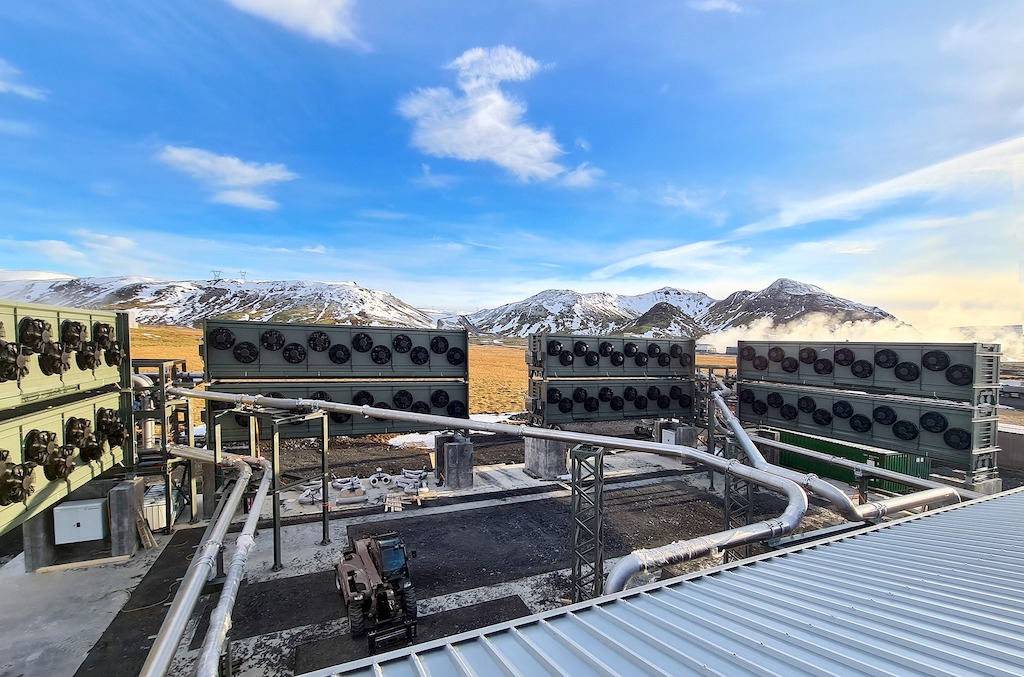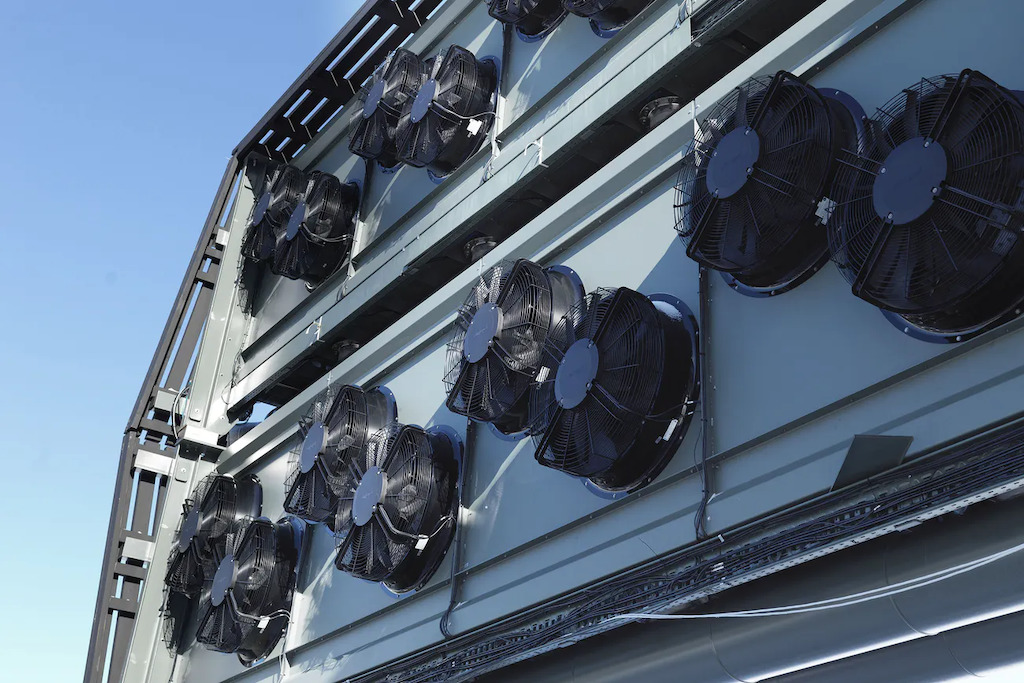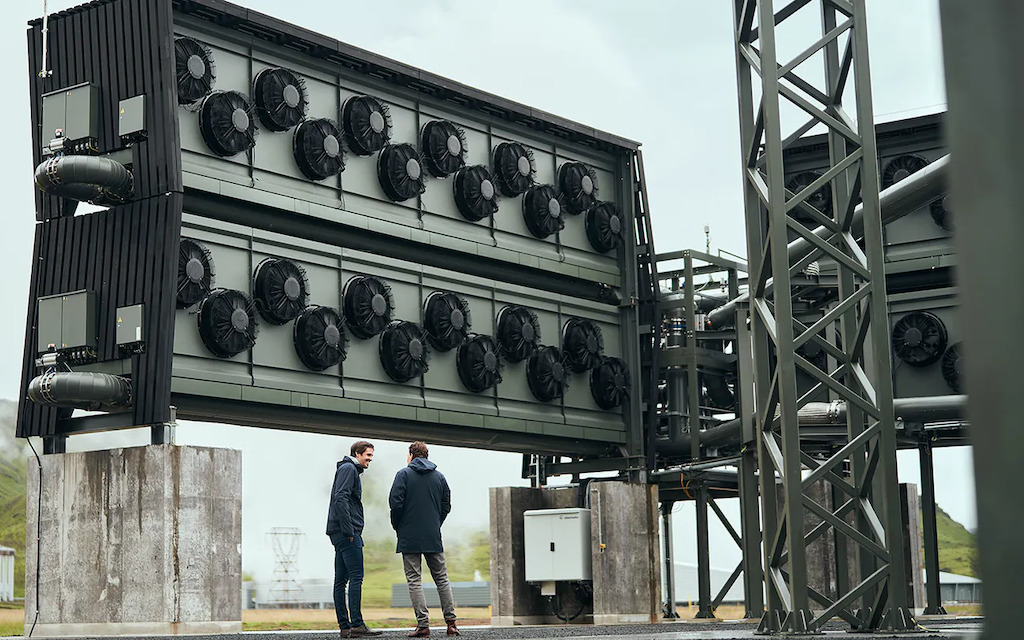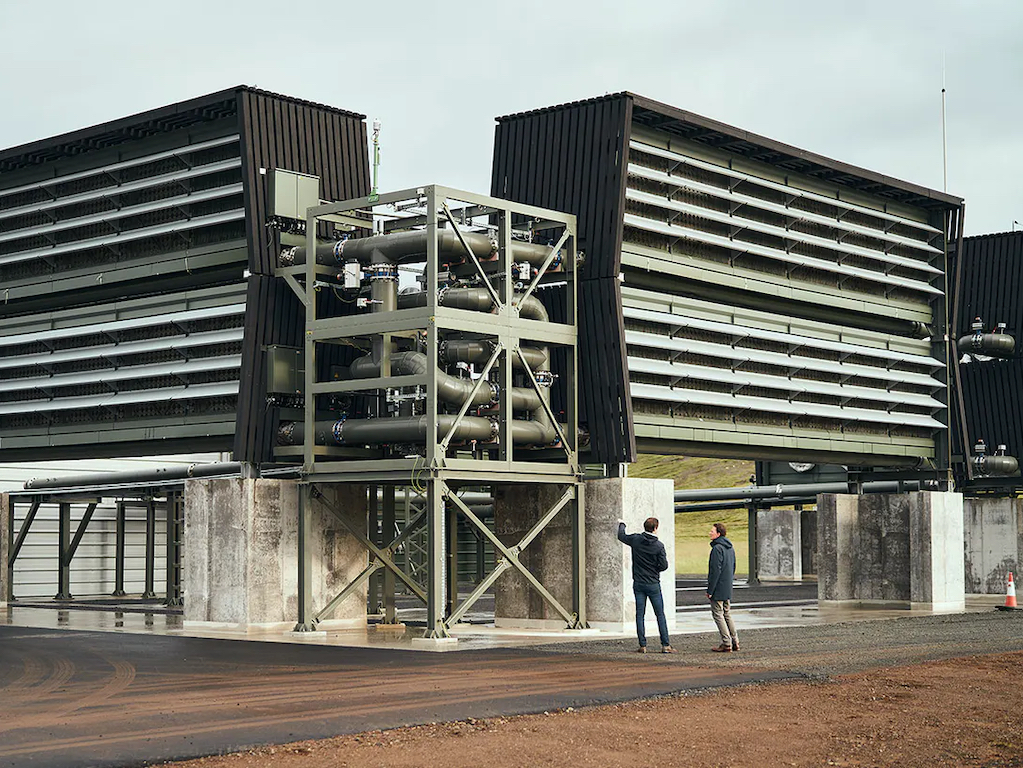4 Mins Read
The world’s biggest carbon capture facility turned on last month in Iceland. And it’s able to directly remove 4,000 tonnes of CO2 from the atmosphere every year and store it permanently. Climeworks, the Swiss company behind the enormous Orca machine, says it has proven that this could be an effective tool to add to the world’s arsenal to fight climate change.
Climeworks recently flicked the switch to turn on Orca, the world’s first-ever climate-positive direct air capture and storage machine. It’s the biggest of its kind, with the capacity to permanently remove and store more than 4,000 tonnes of CO2 annually. Located just on the outskirts of Reykjavik in Iceland, the enormous machine is sucking carbon from the air as you read this.
Orca: the carbon capture machine

Climeworks started building Orca back in May 2020, and it’s now up and running just 15 months after the project started. The Zurich-headquartered firm says the speed is all down to its upgraded technology, which reduces the use of steel by around half.
Right now, Orca sits adjacent to ON Power’s Hellisheiði geothermal power plant, and runs on 100% renewable energy. The same machine can be replicated, built and turned on pretty much anywhere, as long as there is a clean energy source nearby and available storage conditions.
How it actually works at the plant goes like this. Climeworks is partnered up with Carbfix, a firm that specialises in rapid underground mineralisation, and they mix the air-captured carbon from Orca with water and pump it deep below the ground surface. This captured carbon gets trapped in stone through this natural mineralisation process in just under two years. Within one year, around 4,000 tonnes of CO2 will be permanently stored down there.

‘Scalable, flexible and replicable’ climate solution
For the team behind Orca, the successful operation of the carbon capture plant is proof that we now have another solution to effectively fight climate change. With the latest UN IPCC report issuing a “code red” for humanity, the planet needs every tool in its arsenal to avert a climate disaster.
“Orca, as a milestone in the direct air capture industry, has provided a scalable, flexible and replicable blueprint,” shared Climeworks co-CEO Jan Wurzbacher, who co-founded the firm with Christoph Gebald in 2009.
“With this success, we are prepared to rapidly ramp up our capacity in the next years. Achieving global net-zero emissions is still a long way to go, but with Orca, we believe that Climeworks has taken one significant step closer to achieving that goal.”
Wurzbacher went on to say that the company will be “rapidly scaling up” its carbon capture plants around the world, partnering with firms like Microsoft and Shopify to remove more CO2 from the air.

Is it too good to be true?
The promise of direct air capture technology, for some, sounds too good to be true. One report released earlier this year by electronics firm IDTechEx said that “despite the optimism around direct air capture, the technology still faces some serious hurdles before it can reach the scale where it has a meaningful impact on climate change.”
But the researchers did note, that while it is “not a silver bullet”, the tech could contribute to a whole coordinated system of different clean technologies to help move the needle forward in curbing climate change.
Aside from Climeworks, other companies using similar technologies include Silicon Valley-based Prometheus Fuels, which is working on converting carbon from the air into net-zero gasoline that could be sold at petrol stations and replace fossil fuels. Another firm, Newlight Technologies, is sequestering carbon into raw materials that can then be used to sustainably make products, even Nike shoes.
All images courtesy of Climeworks.




